Brief Thoughts: Questionable RF lawsuit, Apple TV+ vs. Disney+, Siri listening & more
Every week has dozens of things going on at any given time, too many to talk about in real-time. Here's what we think about this week's radio frequency revelations and lawsuits, Disney rolling heavy at the D23 expo in regards to Disney+, the workers responsible for listening to Siri recordings, an inadvertent iOS 12 jailbreak restoration, and Google's Android rebranding.
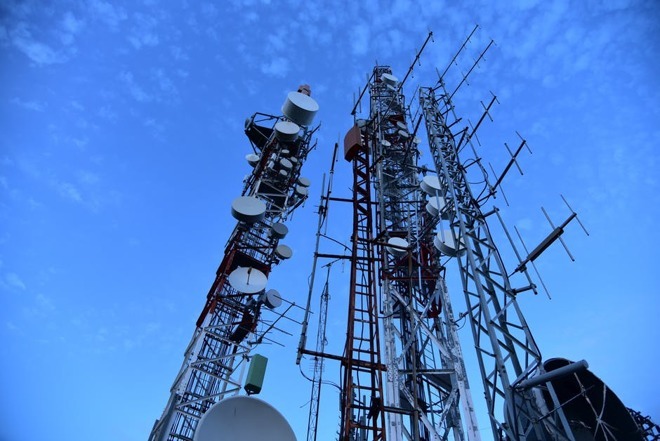
Sample cellphone tower
Editor's note: There's always a lot to talk about, and thoughts to be had, on the stories of the week. This is the launch of a periodic feature discussing in brief what we think about the big-ticket news of the week.
The suit claims Apple "covered up any risks by misinterpreting the safety of the smartphones," and by not informing them of the potential ill effects from RF exposure. These are said in the filing to include "increased cancer risk, cellular stress, increase in free radicals, genetic damages, structural and functional changes of the reproductive system, learning and memory deficits, neurological disorders, and negative impacts on general well-being in humans."
In response to the original report, Apple disputed the findings, claiming they were "inaccurate due to the test setup not being in accordance with procedures necessary to properly assess the iPhone models," that iPhone models in question were certified by relevant regulators in each country they are sold within, and insisted "we are in compliance and meet all applicable exposure guidelines and limits."
Lawyer Beth Fegan, partner at law firm Fegan Scott running the suit, suggested the RF dispute "could be the Chernobyl of the cell phone industry, cover-up and all."
AppleInsider's Take
We've been on this beat for a long time, and we've seen hundreds of ludicrous lawsuits filed both by and against Apple. This particular case is one of the most idiotic we've ever seen, and the filing has only a tenuous grasp on facts which must have been lost while trying to chase a non-existent ambulance down the street.
We've been over the science of radio frequency exposure before. Comparing this to Chernobyl twice now is profoundly intellectually dishonest, and blind to actual science. Further claiming "damage" to consumers stating that they would have not paid as much for the phone had they known is ludicrous, and contrary to what should be a lawyer's drive for truth and actual justice.
The filing firm took two whole days of looking for comment from consumers, and is relying on testing of a single-digit number of iPhones and Samsung Galaxy devices to launch the suit. Going after Apple and Samsung, the dominant forces in mobile, and very specifically not going after Motorola who also had tested phones, just further nails home the money-chasing nature of the suit, and underlines that this isn't about justice, but about the all-mighty dollar above all things.
This will all most likely culminate in the FCC saying that Apple's testing is in accordance with all federal rules and guidances. So, then what?
If there's a suit to be filed about all this, it should be against the Federal Communications Commission and other governmental agencies for the testing protocol and non-occupational exposure limits, that notably are 2% of a conservative safe limit. But, there's no money in that.
Oh, and regarding the idiotic Chernobyl comparison? Assuming very conservatively that the Chernobyl reactor core was 99% depleted, that disaster released more energy to the environment in the first three seconds following the reactor core containment loss than every smartphone in the world would in a year if every person on the planet of any age had one broadcasting in their pocket with enough power to deliver heating effects of 100 watts per kilogram to the user.
That 100 watts per kilogram we're using to prove a point here is impossible for the phones to deliver, is about 50 times what the independent testing came up with, and just a little bit higher than the federally mandated safe limit, that the legal limit of 1.6 watts per kilogram is based on.
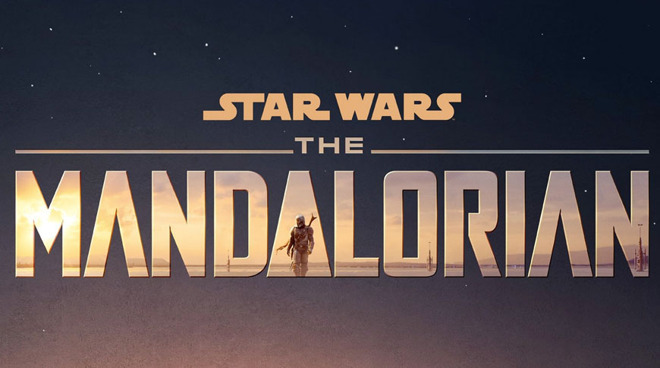
'Star Wars: the Mandalorian' is a live-action series from the Franchise arriving on Disney+
Along with Disney's extensive back catalog and directly-owned intellectual property, the media giant also has access to troves of content from its recent acquisition of 21st Century Fox. Overall, the service will offer family-friendly content, with a broad appeal.
While the content of the service was a major story, there were also details about how it will function with multiple users. As part of the $6.99 subscription, users can stream to up to four devices simultaneously, at a resolution of up to 4K, something not offered by industry heavyweight Netflix without paying for the far costlier $15.99 plan.
AppleInsider's Take
Some of the AppleInsider staffers have children, and this is already a must-buy for them. And, for everybody else, "Star Wars" and the Marvel programming is probably enough.
The rest of humanity will get dragged in with new "High School Musical" content, another reality show about adults who once performed in actual high school musicals going back to the school to re-do the performance, a Jeff Goldblum series, and more. It's a safe bet that adoption numbers will be through the roof.
Netflix should look out, because they are a one-trick pony -- just video streaming. That sound that they hear is the House of Mouse running up behind them.
Apple will have less far, far content at the Apple TV+ launch. Neither it nor Amazon have to panic because streaming isn't either's only business and both have money to wait it out.
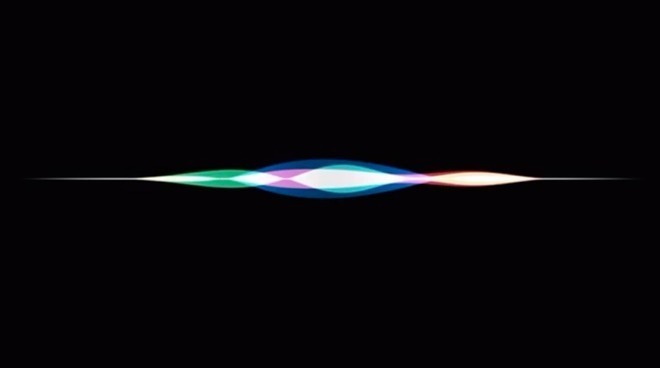
Workers claimed over 300 people were employed for the quality control scheme, with one saying they were expected to listen to around 1,000 recordings per shift. The recordings were said to occasionally include personal data or conversation snippets, but largely consisted of Siri commands.
"I understood the reasons why the company was doing it," one ex-employee advised, "but I could see why people would feel it was a breach of privacy because they weren't telling people."
Apple has always advised it used human-based quality control, via statements on its privacy page and its terms of service, though this wasn't necessarily transparent enough to prevent a 'whistleblower' report from surfacing in July.
AppleInsider's Take
The claims of 1000 recordings per shift at "seconds" per is reasonable. Even if you assume that each recording is 15 seconds, that's still just over four hours per shift of examination, and it doesn't leave a lot of time for workers to identify anybody enough to cause any real problems.
It's unfortunate and inevitable that the contractors lost the jobs, though. Apple's suspension of the quality program was the right thing to do, and we'd like the program to be opt-in instead of opt-out, but we'll see how that goes.
But, like before, saying that Apple never said that this was happening is wrong. This has been in the terms of service of iOS and in Apple's privacy pages since inception.
And, like the radio frequency thing, the ambulances are already being chased in this matter, for questionable reasons.
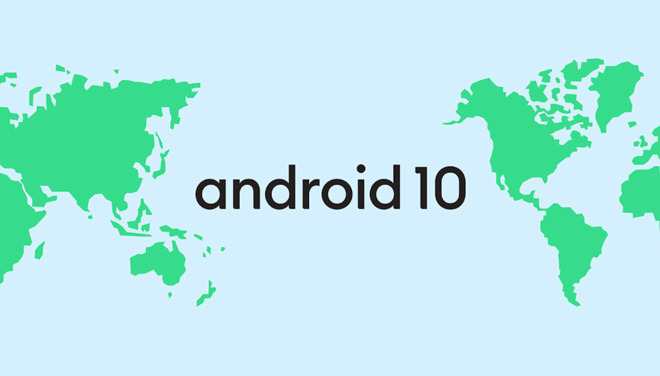
New color scheme and branding for Google's Android
"This naming tradition has become a fun part of the release each year," Google said, "but we've heard feedback over the years that the names weren't always understood by everyone in the global community." Google also found some Android users unfamiliar with the naming scheme were unaware of whether or not they were running the newest version of the operating system.
Formerly debuted as "Android Q," Android 10 will introduce a wide array of changes, including permission pop-ups for apps, disk encryption on low-end phones, and individually-updatable OS components, allowing for critical security issues to be fixed without requiring a full-scale release.
Android 10 will be arriving "in the next few weeks," though it is unclear beyond test devices what hardware will run the software. For many consumers, the rollout could take months, as individual device vendors will be working on their own refined versions.
AppleInsider's Take
Google, like Apple, counts funny. MacOS X hasn't been the tenth big version of Apple's desktop and laptop operating system in ages, and counting only major dessert-related names, this should be Android 16.
But, Google is right. A front-facing numeric system not hidden behind food -- or big cats, or geographic features -- could be more transparent to users of the devices to see if they've got the best and newest Google has to offer. Of course, that's assuming that the users care, or even know, that there's a better version of Android to slam on their phones.
This doesn't solve Google's larger problem of hardware manufacturer adoption and carrier certifications, though. That is a far bigger problem across the board for Google than changing the Android guy to just a green head, and calling it Android 10.
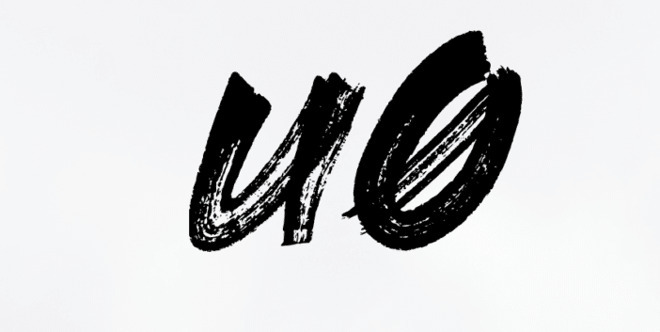
Researcher "pwn2ownd" on Monday released a new version of the "unc0ver" jailbreak with support for iOS 12.4.
Security researchers were worried as, since it applies to the current iOS 12.4, and is the only version available from Apple, this means iPhones and iPads that are kept up to date along with those running pre-12.3 versions of iOS are vulnerable. Researchers have already capitalized on the issue, with one releasing a free jailbreak for iOS 12.4, which iPhone owners testing it out reported as functional.
According to researcher "pwn2ownd," the jailbreak's creator, it is possible for a bad actor to leverage the snafu to "make a perfect spyware," warning it is "very likely that someone is already exploiting this bug for bad purposes."
AppleInsider's Take
The most charitable take on the affair is that "accidents happen." Developing software is hard, and with such a huge project like iOS, it is inevitable for issues to crop up occasionally that could be put down to a simple oversight. The usual response by developers is an acknowledgement of the problem, fixing it, and committing to never letting it happen again.
The problem here is that Apple has had a few pretty bad lack of attention to detail issues in its software in the last year. It is in Apple's best interests to pay attention to those details to keep secure an operating system used on billions of devices that all hold the keys to people's digital lives.
Apple has considerable experience in development and is supposed to be setting an example to other developers on how to produce software. Enabling a fix then seemingly forgetting to include that fix one release later is just sloppy, no matter how you view it.

Sample cellphone tower
Editor's note: There's always a lot to talk about, and thoughts to be had, on the stories of the week. This is the launch of a periodic feature discussing in brief what we think about the big-ticket news of the week.
Apple, Samsung slapped with class action over handset RF emissions
Two days after the publication of an investigation by the Chicago Tribune finding late-model iPhones and those of other producers do not comply with FCC limits on RF radiation emissions, a class action suit was filed with the U.S. District Court for the Northern District of California over the matter.The suit claims Apple "covered up any risks by misinterpreting the safety of the smartphones," and by not informing them of the potential ill effects from RF exposure. These are said in the filing to include "increased cancer risk, cellular stress, increase in free radicals, genetic damages, structural and functional changes of the reproductive system, learning and memory deficits, neurological disorders, and negative impacts on general well-being in humans."
In response to the original report, Apple disputed the findings, claiming they were "inaccurate due to the test setup not being in accordance with procedures necessary to properly assess the iPhone models," that iPhone models in question were certified by relevant regulators in each country they are sold within, and insisted "we are in compliance and meet all applicable exposure guidelines and limits."
Lawyer Beth Fegan, partner at law firm Fegan Scott running the suit, suggested the RF dispute "could be the Chernobyl of the cell phone industry, cover-up and all."
AppleInsider's Take
We've been on this beat for a long time, and we've seen hundreds of ludicrous lawsuits filed both by and against Apple. This particular case is one of the most idiotic we've ever seen, and the filing has only a tenuous grasp on facts which must have been lost while trying to chase a non-existent ambulance down the street.
We've been over the science of radio frequency exposure before. Comparing this to Chernobyl twice now is profoundly intellectually dishonest, and blind to actual science. Further claiming "damage" to consumers stating that they would have not paid as much for the phone had they known is ludicrous, and contrary to what should be a lawyer's drive for truth and actual justice.
The filing firm took two whole days of looking for comment from consumers, and is relying on testing of a single-digit number of iPhones and Samsung Galaxy devices to launch the suit. Going after Apple and Samsung, the dominant forces in mobile, and very specifically not going after Motorola who also had tested phones, just further nails home the money-chasing nature of the suit, and underlines that this isn't about justice, but about the all-mighty dollar above all things.
This will all most likely culminate in the FCC saying that Apple's testing is in accordance with all federal rules and guidances. So, then what?
If there's a suit to be filed about all this, it should be against the Federal Communications Commission and other governmental agencies for the testing protocol and non-occupational exposure limits, that notably are 2% of a conservative safe limit. But, there's no money in that.
Oh, and regarding the idiotic Chernobyl comparison? Assuming very conservatively that the Chernobyl reactor core was 99% depleted, that disaster released more energy to the environment in the first three seconds following the reactor core containment loss than every smartphone in the world would in a year if every person on the planet of any age had one broadcasting in their pocket with enough power to deliver heating effects of 100 watts per kilogram to the user.
That 100 watts per kilogram we're using to prove a point here is impossible for the phones to deliver, is about 50 times what the independent testing came up with, and just a little bit higher than the federally mandated safe limit, that the legal limit of 1.6 watts per kilogram is based on.
Disney amps up streaming wars with 'Star Wars' & other programming announcements
Announced during the D23 Expo, Disney's plans for the Disney+ streaming service seemingly offers far more than what Apple has lined up for AppleTV+. The lineup includes a mix of new and rehashed content, including a CGI remake of classic 1955 animation "Lady and the Tramp," along with a Star Wars television series as a prequel to "Star Wars: Rogue One" called "The Mandalorian."
'Star Wars: the Mandalorian' is a live-action series from the Franchise arriving on Disney+
Along with Disney's extensive back catalog and directly-owned intellectual property, the media giant also has access to troves of content from its recent acquisition of 21st Century Fox. Overall, the service will offer family-friendly content, with a broad appeal.
While the content of the service was a major story, there were also details about how it will function with multiple users. As part of the $6.99 subscription, users can stream to up to four devices simultaneously, at a resolution of up to 4K, something not offered by industry heavyweight Netflix without paying for the far costlier $15.99 plan.
AppleInsider's Take
Some of the AppleInsider staffers have children, and this is already a must-buy for them. And, for everybody else, "Star Wars" and the Marvel programming is probably enough.
The rest of humanity will get dragged in with new "High School Musical" content, another reality show about adults who once performed in actual high school musicals going back to the school to re-do the performance, a Jeff Goldblum series, and more. It's a safe bet that adoption numbers will be through the roof.
Netflix should look out, because they are a one-trick pony -- just video streaming. That sound that they hear is the House of Mouse running up behind them.
Apple will have less far, far content at the Apple TV+ launch. Neither it nor Amazon have to panic because streaming isn't either's only business and both have money to wait it out.
Laid off Apple contractors listened to 1,000 Siri recordings per shift
A group of employees were laid off in Cork, Ireland, according to a report, caused by Apple suspending a program where humans would listen to Siri recordings. The program, which used seconds-long recordings that were analyzed to improve Siri's responses, was put on hold so the iPhone maker could take time to review the program.
Workers claimed over 300 people were employed for the quality control scheme, with one saying they were expected to listen to around 1,000 recordings per shift. The recordings were said to occasionally include personal data or conversation snippets, but largely consisted of Siri commands.
"I understood the reasons why the company was doing it," one ex-employee advised, "but I could see why people would feel it was a breach of privacy because they weren't telling people."
Apple has always advised it used human-based quality control, via statements on its privacy page and its terms of service, though this wasn't necessarily transparent enough to prevent a 'whistleblower' report from surfacing in July.
AppleInsider's Take
The claims of 1000 recordings per shift at "seconds" per is reasonable. Even if you assume that each recording is 15 seconds, that's still just over four hours per shift of examination, and it doesn't leave a lot of time for workers to identify anybody enough to cause any real problems.
It's unfortunate and inevitable that the contractors lost the jobs, though. Apple's suspension of the quality program was the right thing to do, and we'd like the program to be opt-in instead of opt-out, but we'll see how that goes.
But, like before, saying that Apple never said that this was happening is wrong. This has been in the terms of service of iOS and in Apple's privacy pages since inception.
And, like the radio frequency thing, the ambulances are already being chased in this matter, for questionable reasons.
Google's final release of Android 10 is coming soon, with new branding
Google is close to bringing out the latest version of Android for use by Android smartphone producers with their devices but the search company is making a fundamental change to how it is marketed. Instead of referring to it publicly by the dessert-based internal code names, it will be known simply as Android 10.
New color scheme and branding for Google's Android
"This naming tradition has become a fun part of the release each year," Google said, "but we've heard feedback over the years that the names weren't always understood by everyone in the global community." Google also found some Android users unfamiliar with the naming scheme were unaware of whether or not they were running the newest version of the operating system.
Formerly debuted as "Android Q," Android 10 will introduce a wide array of changes, including permission pop-ups for apps, disk encryption on low-end phones, and individually-updatable OS components, allowing for critical security issues to be fixed without requiring a full-scale release.
Android 10 will be arriving "in the next few weeks," though it is unclear beyond test devices what hardware will run the software. For many consumers, the rollout could take months, as individual device vendors will be working on their own refined versions.
AppleInsider's Take
Google, like Apple, counts funny. MacOS X hasn't been the tenth big version of Apple's desktop and laptop operating system in ages, and counting only major dessert-related names, this should be Android 16.
But, Google is right. A front-facing numeric system not hidden behind food -- or big cats, or geographic features -- could be more transparent to users of the devices to see if they've got the best and newest Google has to offer. Of course, that's assuming that the users care, or even know, that there's a better version of Android to slam on their phones.
This doesn't solve Google's larger problem of hardware manufacturer adoption and carrier certifications, though. That is a far bigger problem across the board for Google than changing the Android guy to just a green head, and calling it Android 10.
Apple accidentally unpatches iOS vulnerability, hacker creates new jailbreak
For the first time in years, hackers released a publicly-available jailbreak for iPhones running up-to-date software, a feat accomplished due to a slip on Apple's side. The release of iOS 12.4 in July contains a bug found by Google security researchers, one that was previously closed in iOS 12.3 but unexpectedly reverted in the next release.
Researcher "pwn2ownd" on Monday released a new version of the "unc0ver" jailbreak with support for iOS 12.4.
Security researchers were worried as, since it applies to the current iOS 12.4, and is the only version available from Apple, this means iPhones and iPads that are kept up to date along with those running pre-12.3 versions of iOS are vulnerable. Researchers have already capitalized on the issue, with one releasing a free jailbreak for iOS 12.4, which iPhone owners testing it out reported as functional.
According to researcher "pwn2ownd," the jailbreak's creator, it is possible for a bad actor to leverage the snafu to "make a perfect spyware," warning it is "very likely that someone is already exploiting this bug for bad purposes."
AppleInsider's Take
The most charitable take on the affair is that "accidents happen." Developing software is hard, and with such a huge project like iOS, it is inevitable for issues to crop up occasionally that could be put down to a simple oversight. The usual response by developers is an acknowledgement of the problem, fixing it, and committing to never letting it happen again.
The problem here is that Apple has had a few pretty bad lack of attention to detail issues in its software in the last year. It is in Apple's best interests to pay attention to those details to keep secure an operating system used on billions of devices that all hold the keys to people's digital lives.
Apple has considerable experience in development and is supposed to be setting an example to other developers on how to produce software. Enabling a fix then seemingly forgetting to include that fix one release later is just sloppy, no matter how you view it.

Comments
RF lawsuit: Frivolous. I doubt it will ever be litigated in a court of law.
Disney: Disney ain't f'n around. They are coming out of the corner swinging for the fences (remix intented). Fairly certain just gonna do a yearly sub and call it a day. Still keeping my Netflix though.
OEM eavesdropping: As is the case almost 100% of the time, this wound is self inflicted through the use of ambiguous corporate language that requires interpretation. Explicit language could have made this a non-issue. Contrary to AI's assertion, nothing in Apple's iOS TOS nor the privacy policy says that humans will be listening to Siri recordings. Both the TOS and the privacy policy wording can be interpreted in different ways... and they are depending on the readers biases. There's definitely nothing about outside contractors doing the work. Pretty sure even most ardent Apple fan who thought Apple's language was sufficient notification of human listening, assumed Apple employees were doing the work. Simple unambiguous wording is always best. I think the program is useful. I think the OEM's should use their employees. I think it should be opt-in, not opt-out.
Google's Android 10: Numerical naming convention makes sense. Public, generally doesn't know or care about OS version. Problem is, OEM's and carriers know it so there's no urgency to quickly update beyond half-hearted efforts to avoid negative press. Android's core apps are separated from OS updates and that's all people really care about imo. Well, not so much as care as wanting to get rid of the notification.
Unpatching patch: Stuff happens. Fix it and move on. As noted by AI, it can get a little concerning since there have been some careless "stuff" recently. Tighten that isht up Apple.
It's not like they're sending a bus to the Cupertino McDonalds lobby for workers.
Also, there's not a lot of wiggle room for interpretation here.
That section is ambiguously worded, just like I'm sure it's ambiguously worded by Google, Amazon, Microsoft, and hosts of other companies.
And, I'm not sure how you figure that there is wiggle room - and that's fine.
I'm still in the cable TV camp but am considering what cutting the cable would mean. We pay around 150-200 a month. So the question will be what is the cost of internet and what is available in my area. If I stick with Comcast they may provide a substandard connection if I don't have TV cable.
That might help explain the initial reports claiming the outside contractors were given "location, contact details, and app data” connected to the supplied Siri recordings from that user.
Apple has connected Siri voice and User Data sharing with 3rd parties (the "Agents" I suppose) for a reason. Putting things together this would seem to be that reason. That the Apple ID wasn't supplied, and I'm sure it wasn't as Apple would not lie about that detail, would not preclude some other user data from being attached to the recordings meant for transcription.
EDIT: One other question @"Mike Wuerthele" : I just noted that the disclosure of the permissions you've granted Siri, and highlighted in your earlier post, appear to be clipped from an old privacy policy connected to iOS6. Is there a current disclosure as well?